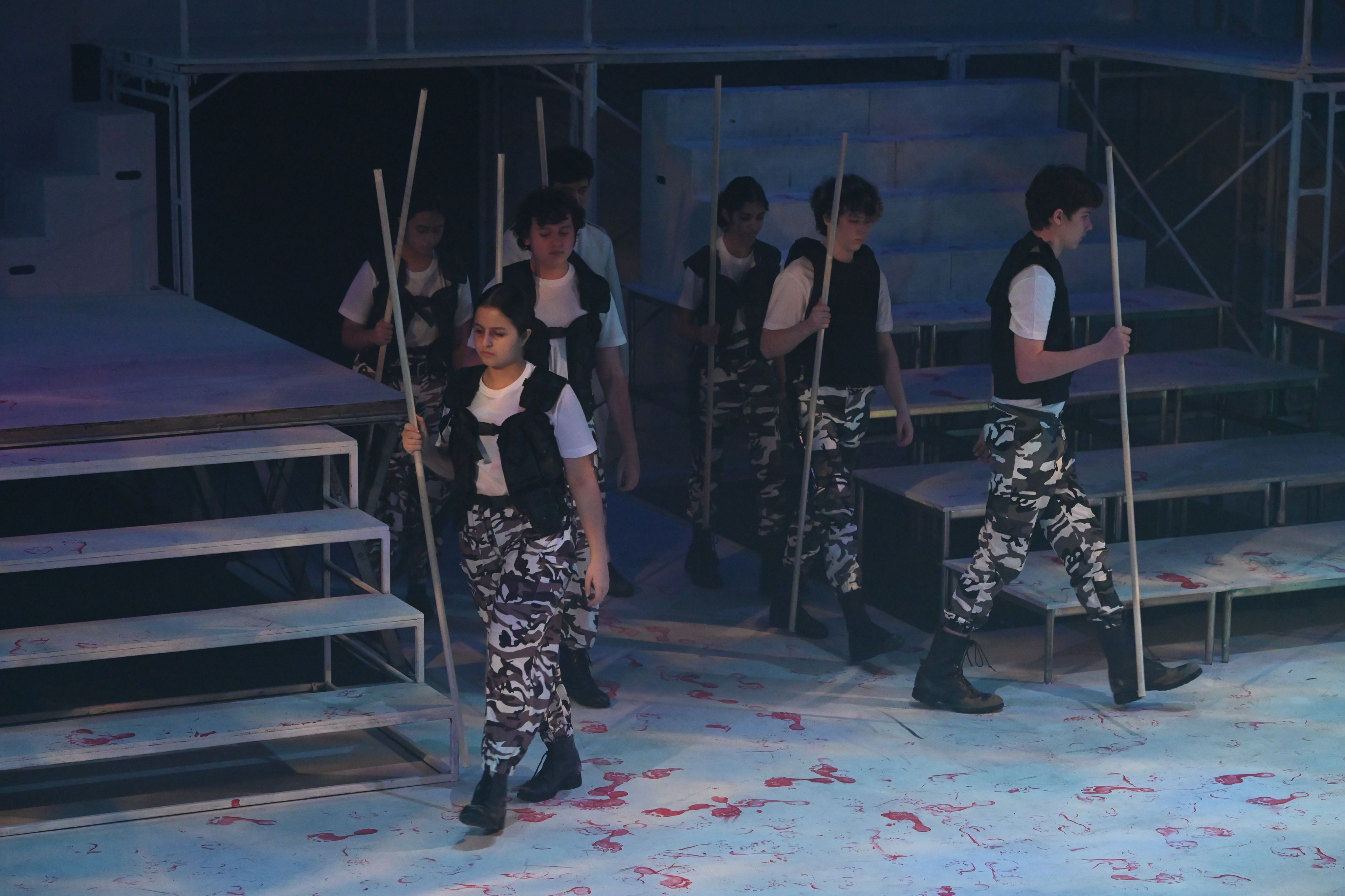Why are we here?...
Why are we here?...
Why are we here?...
Why “Dunsinane”, and why now?
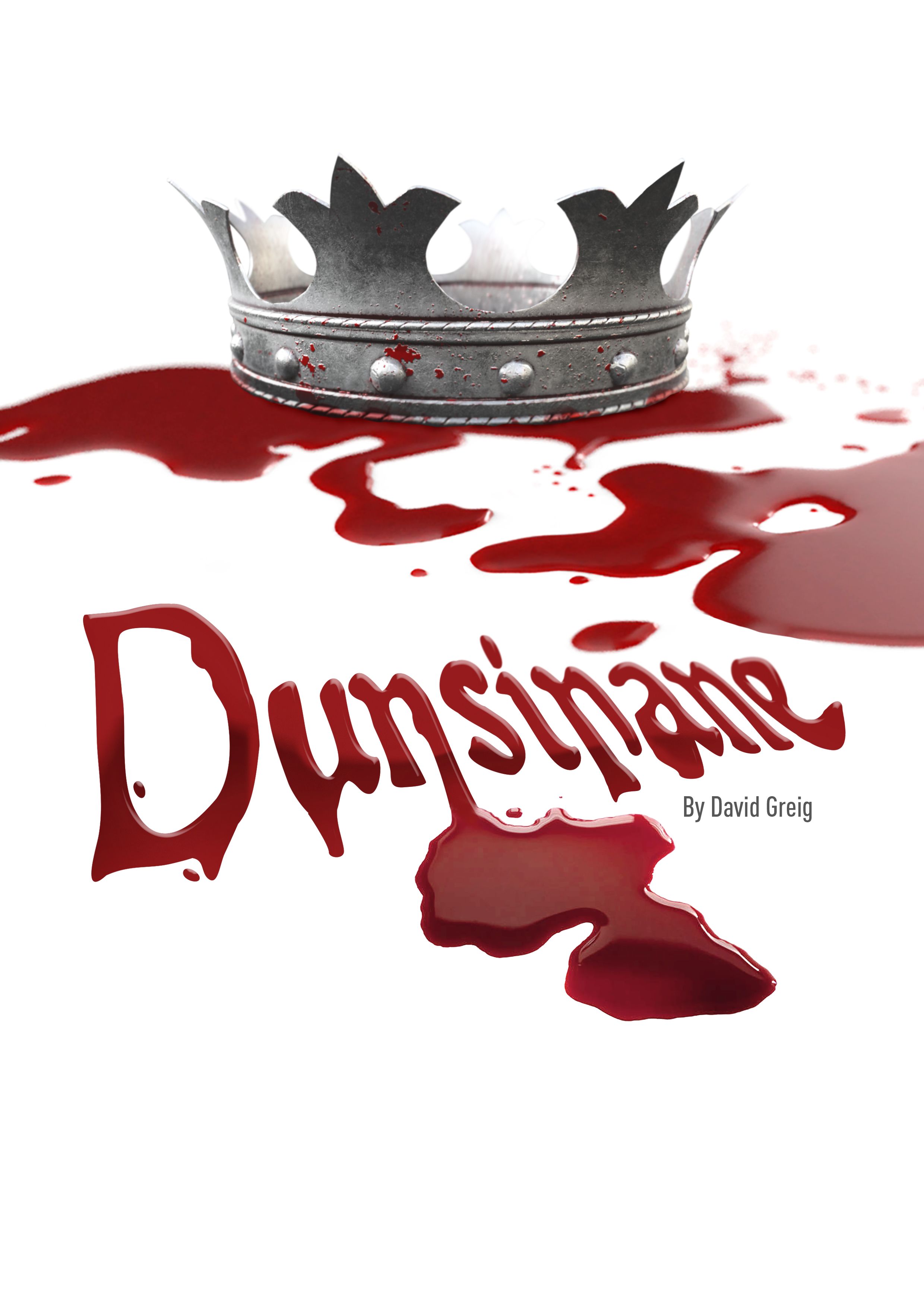
This year’s Grade 9 and 10 Drama production, "Dunsinane",
a play by David Greig, took place on 23 and 24 March.

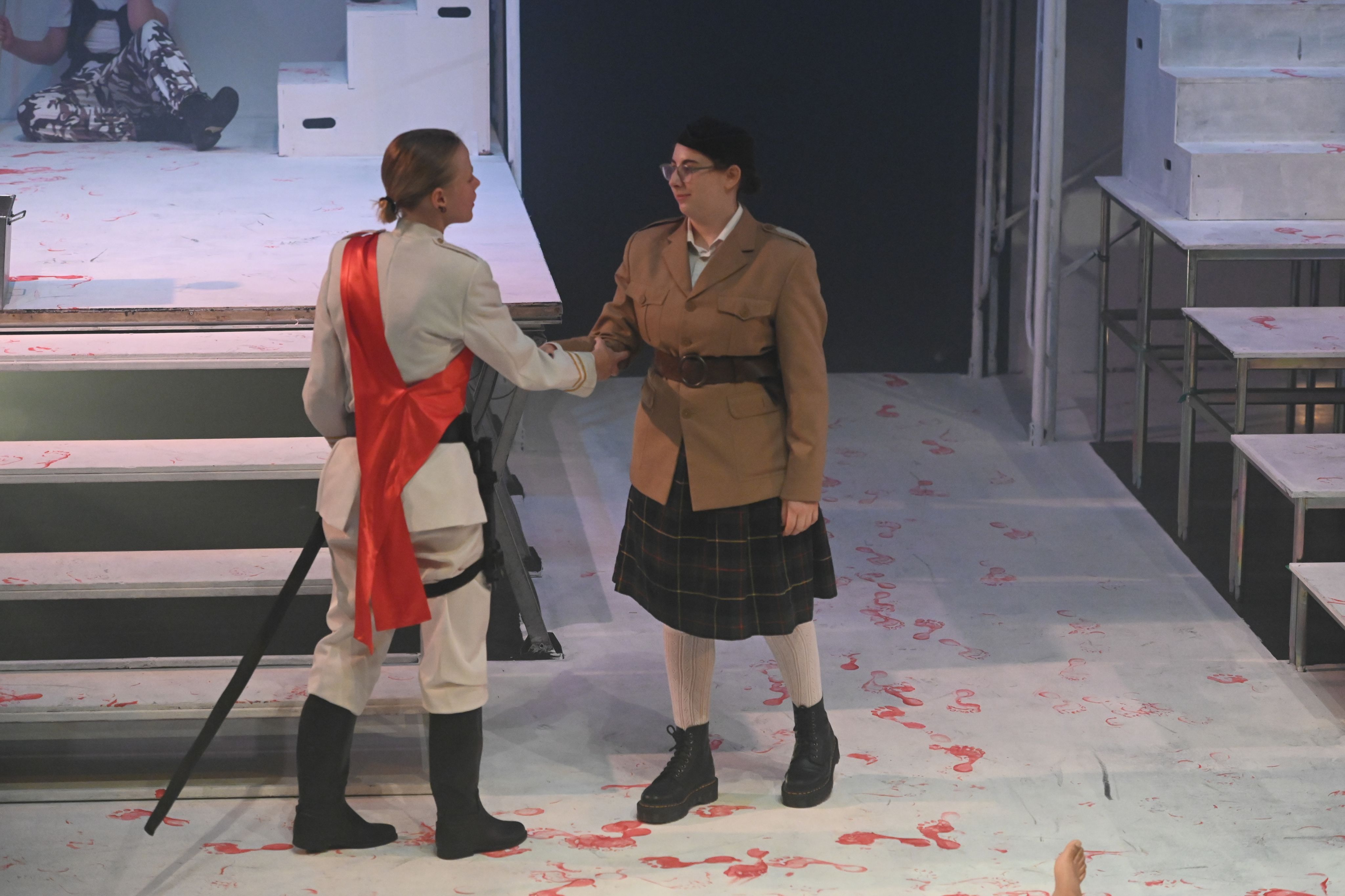
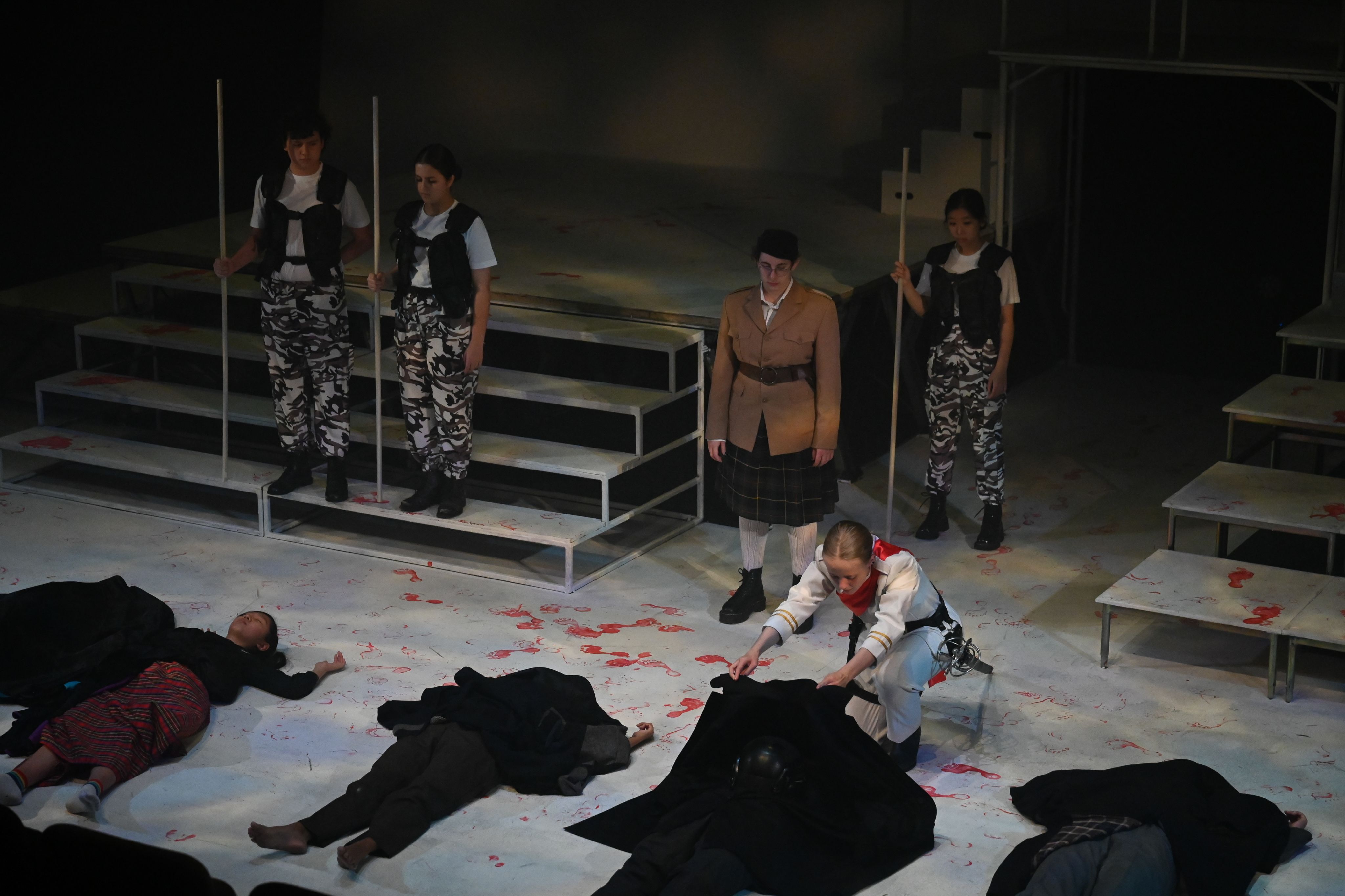
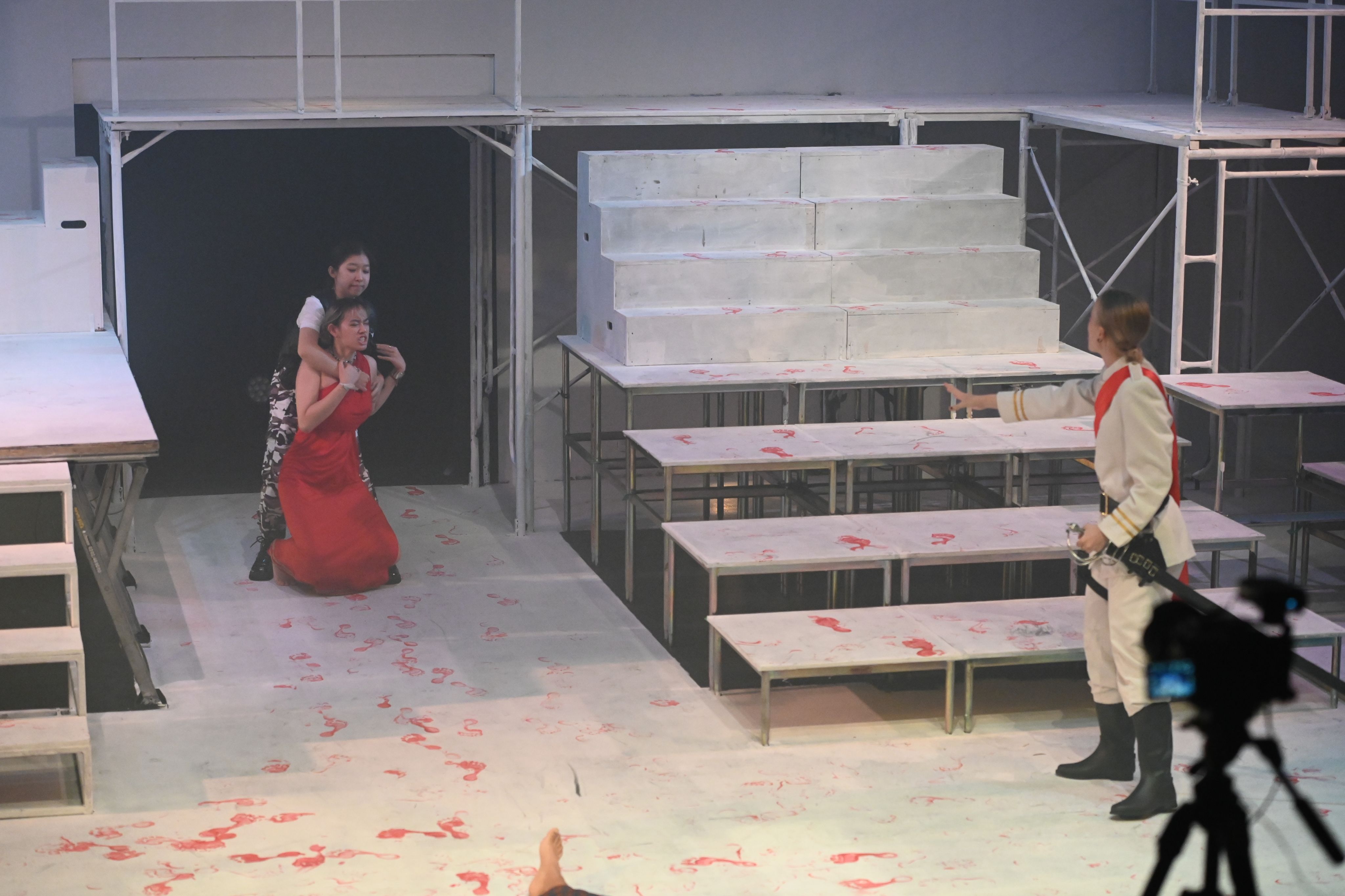
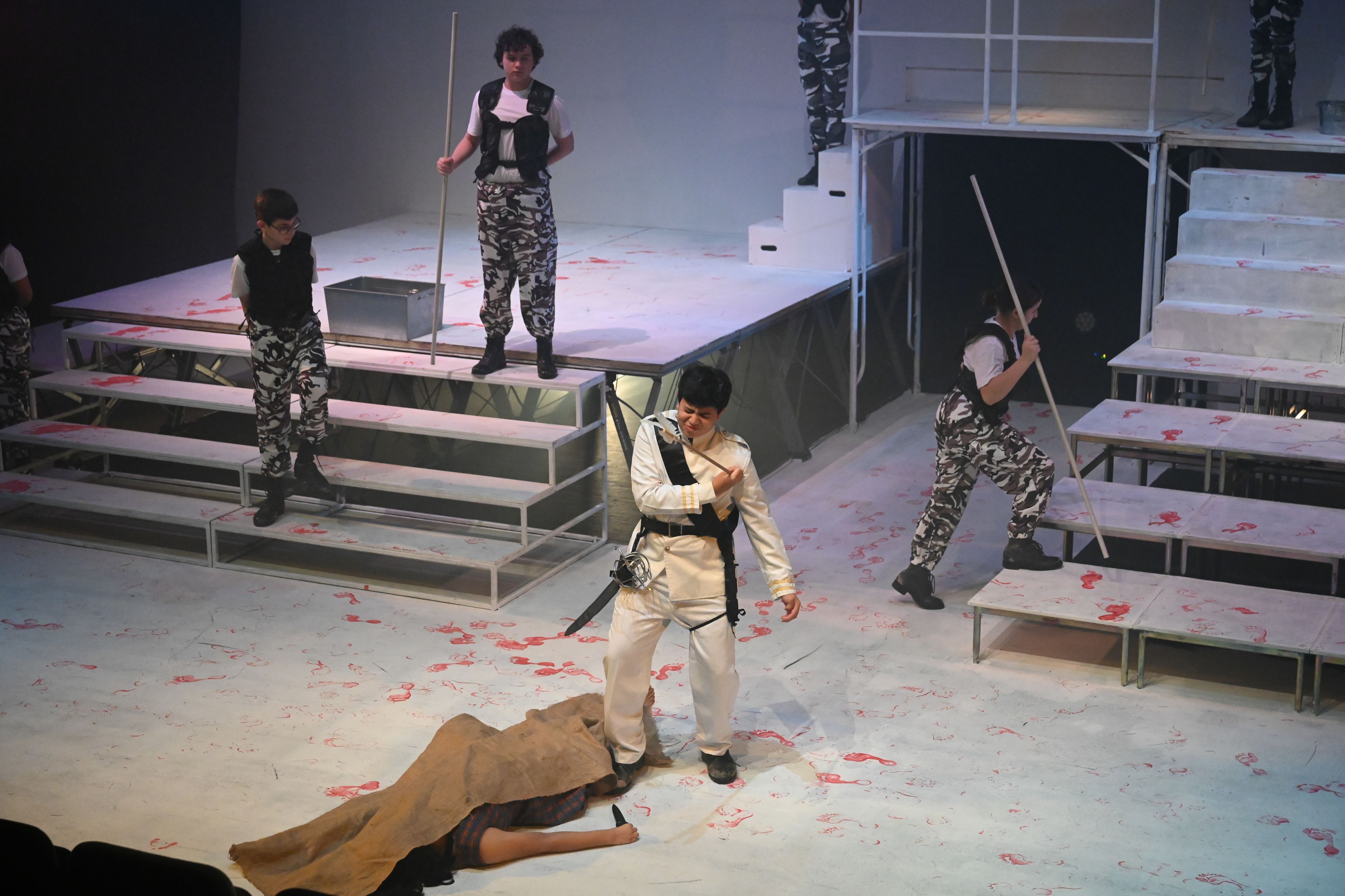
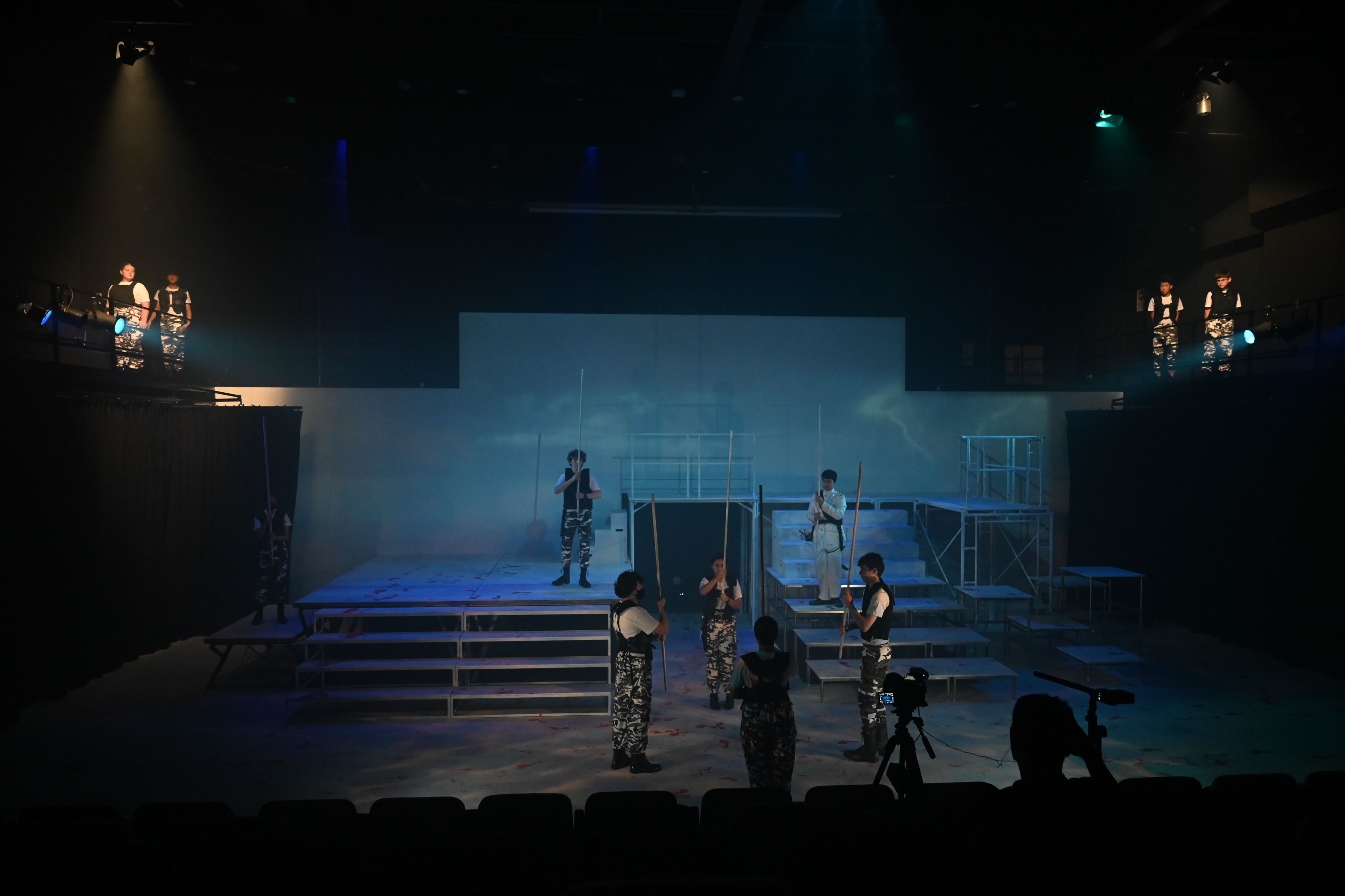
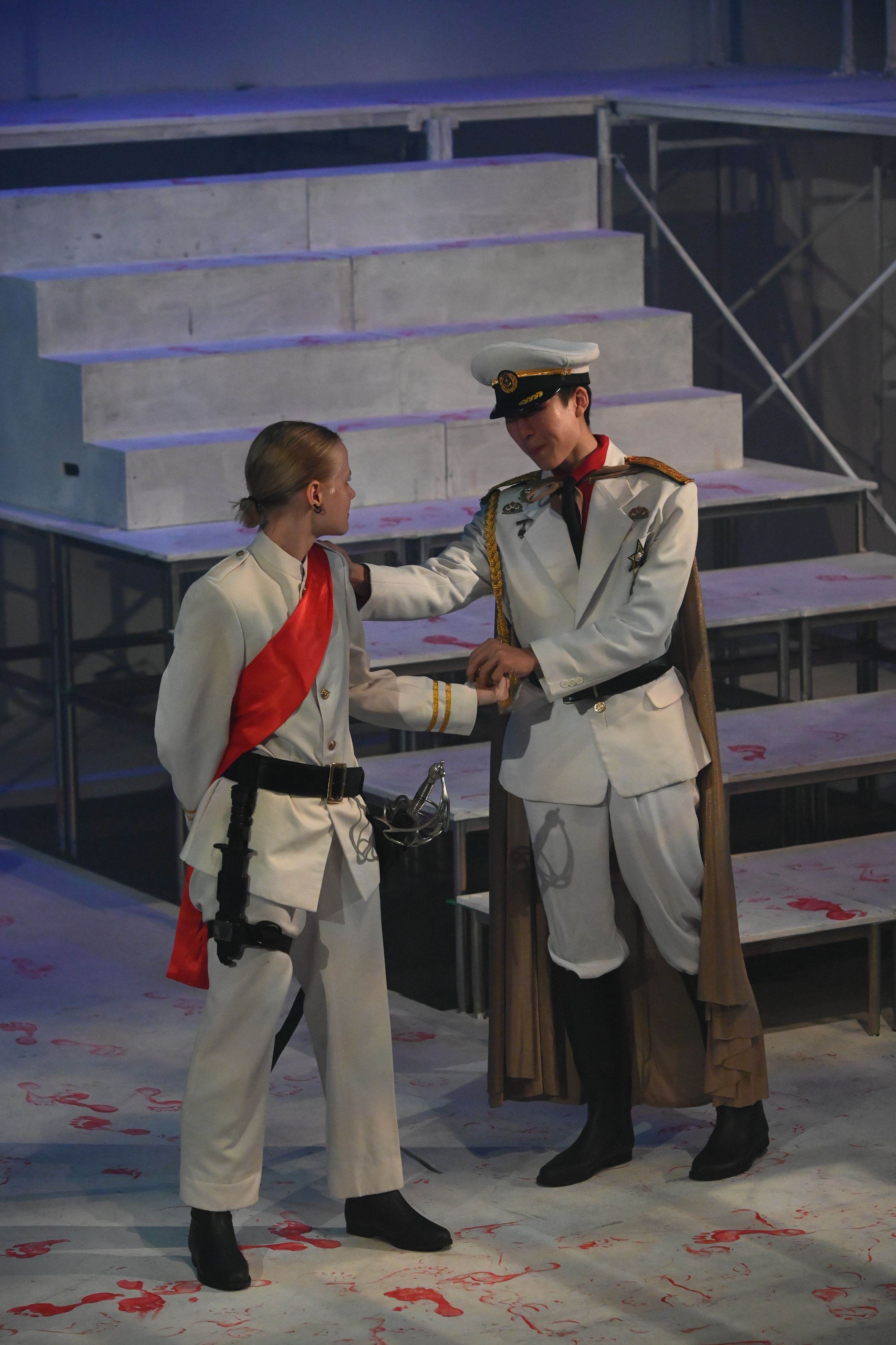
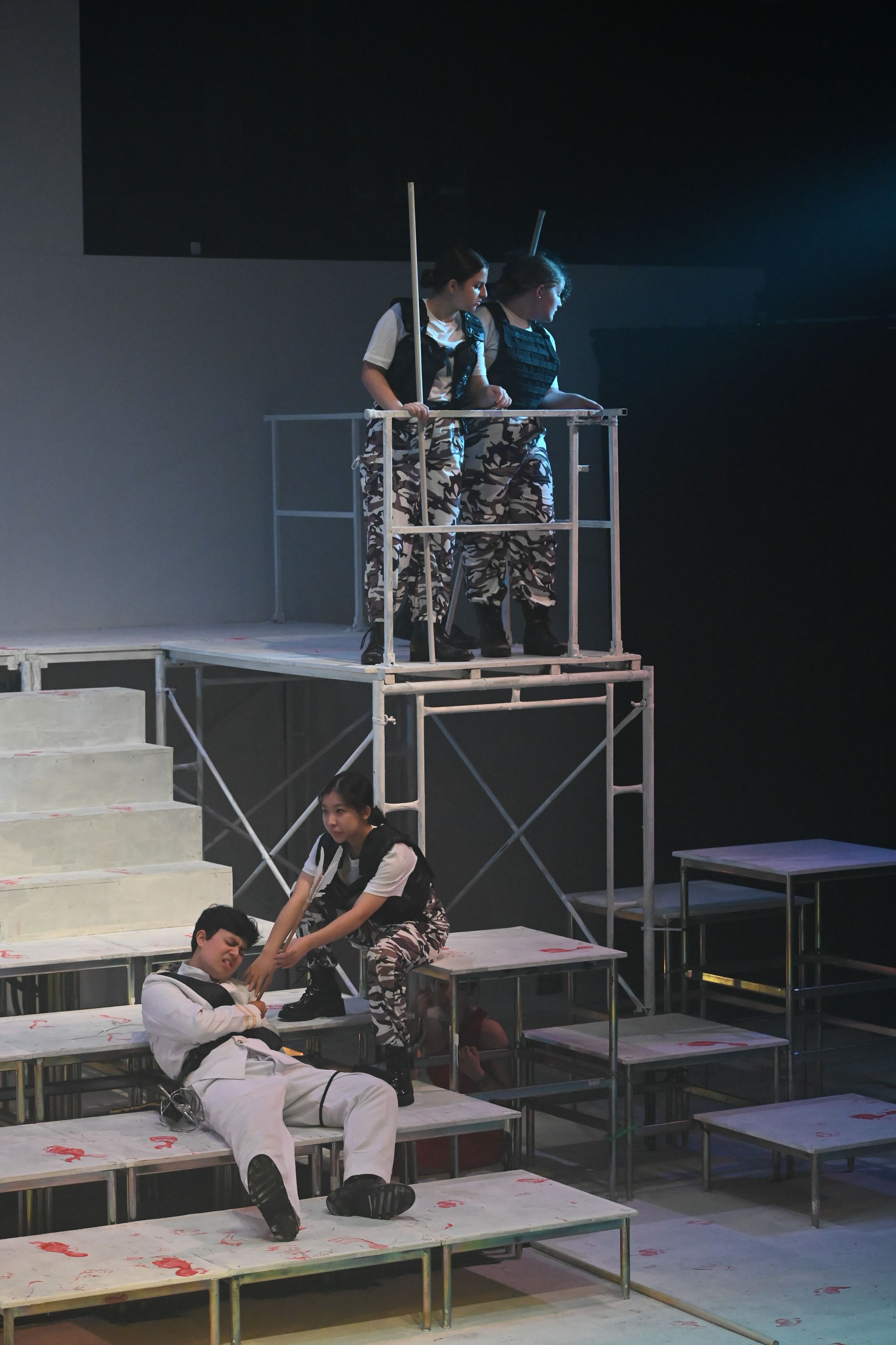
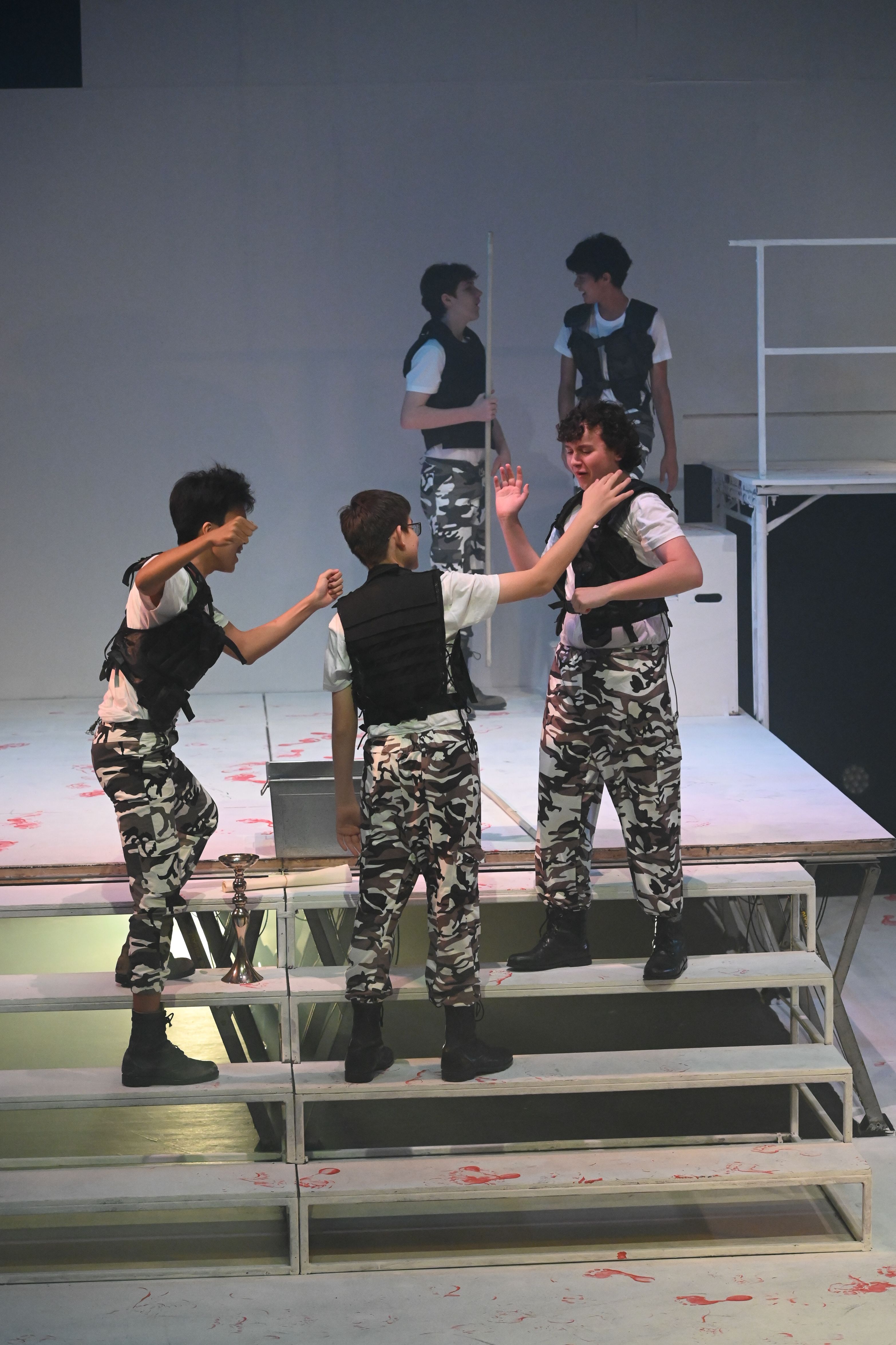
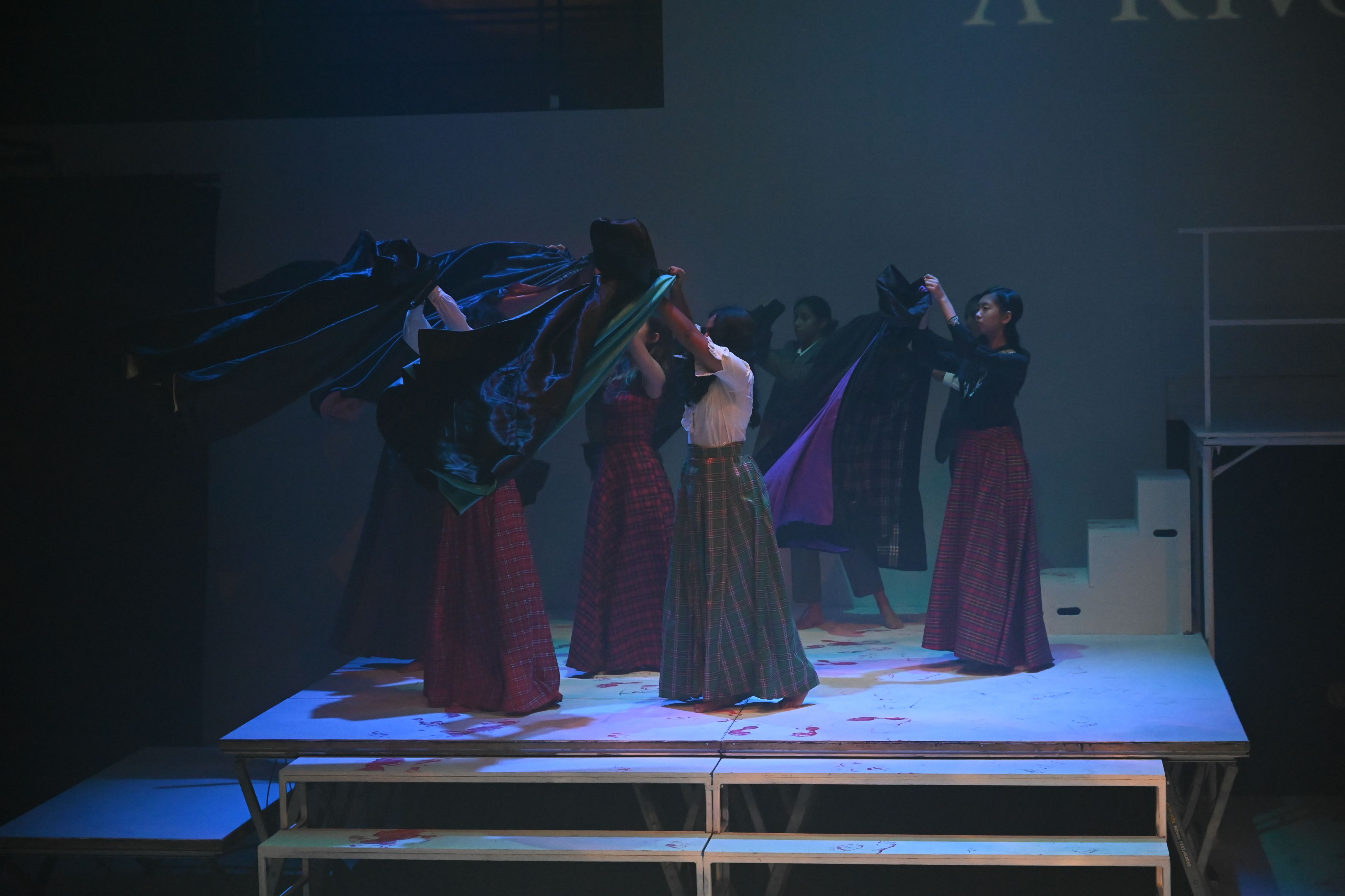









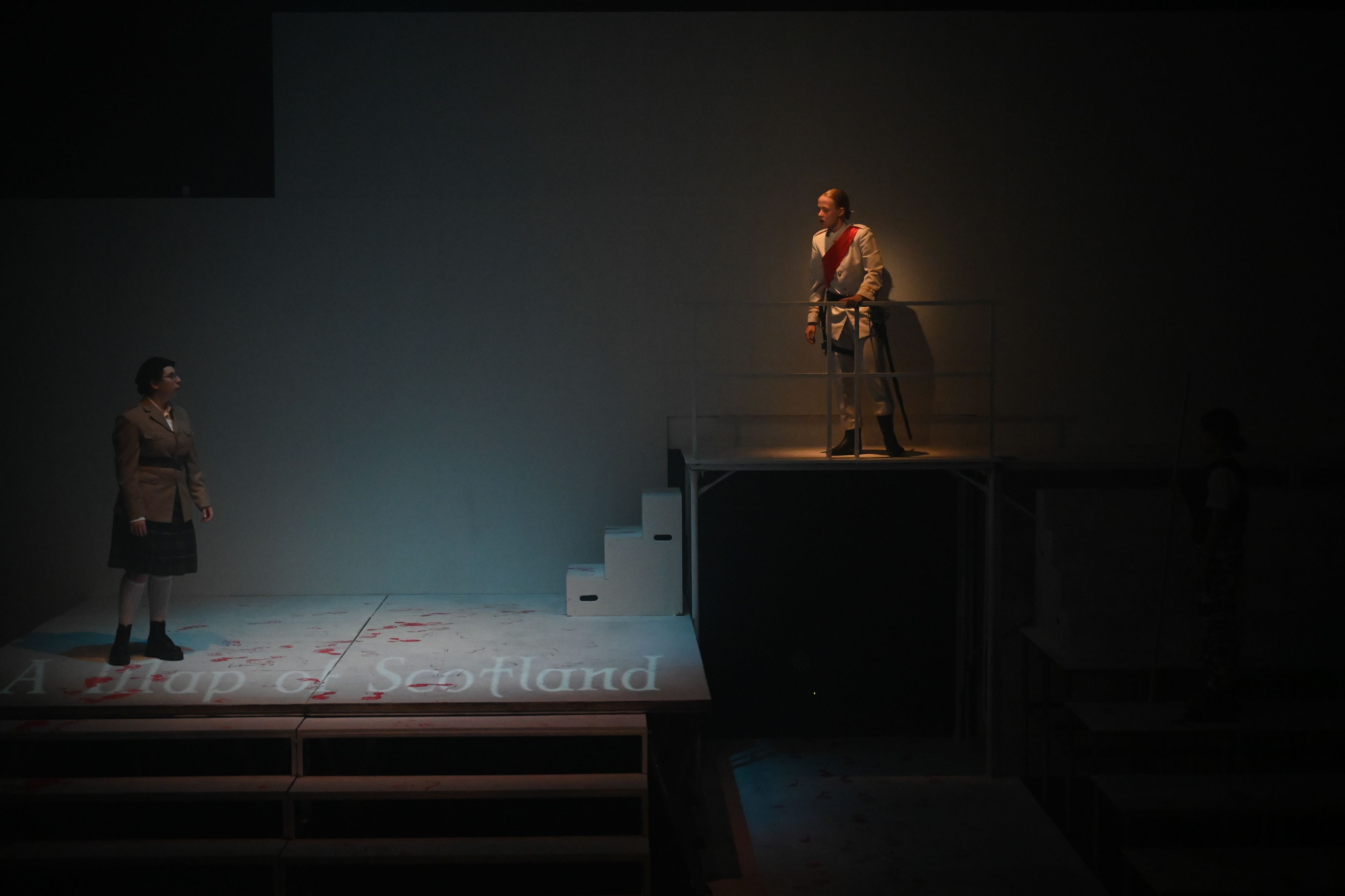
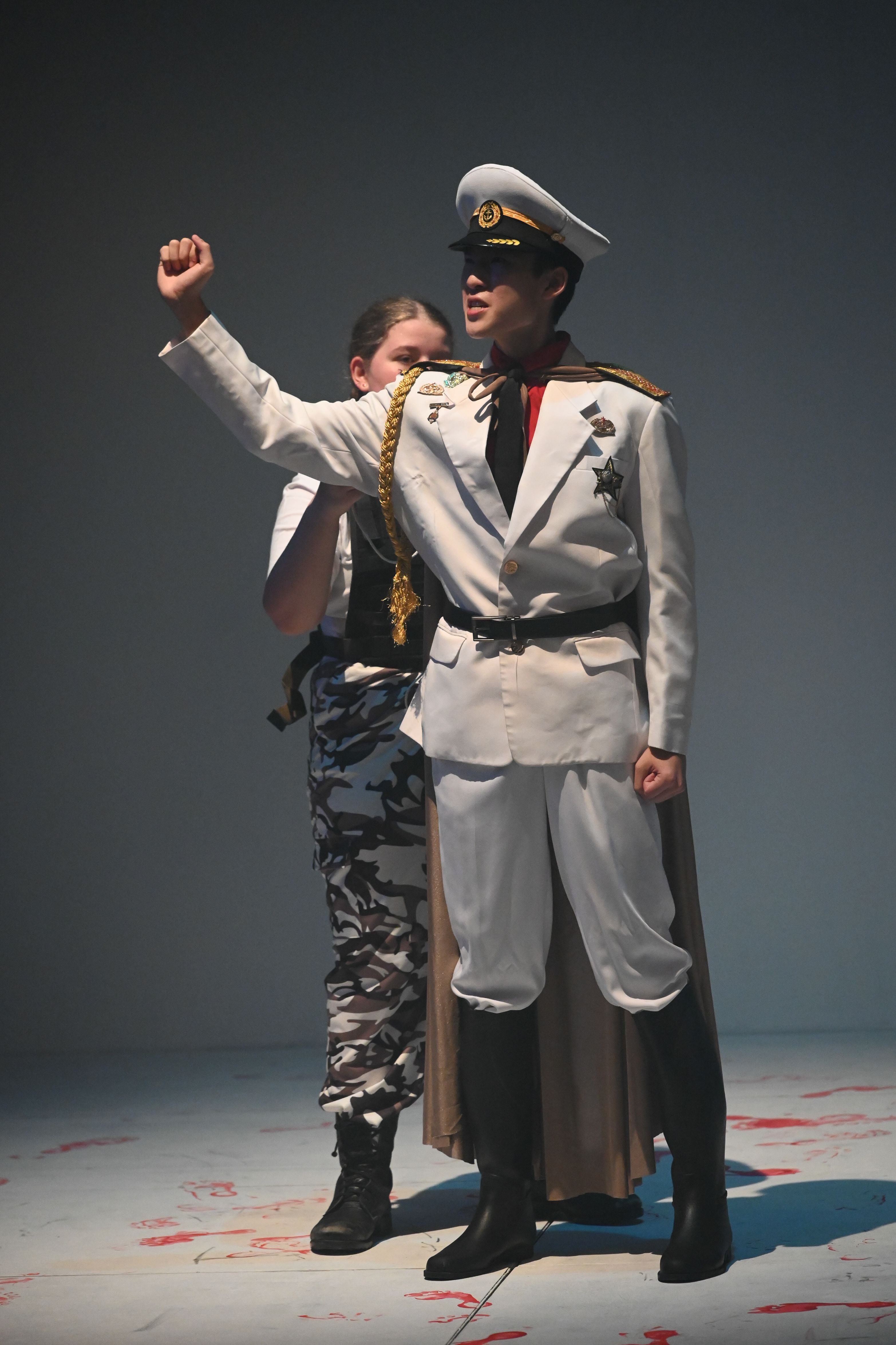
The plot:
The narrative follows a group of English soldiers in the aftermath of the Battle of Dunsinane, picking up from the end of William Shakespeare’s Macbeth. The play twists and turns as several internal factions try to fill the power vacuum. Meanwhile, the foreign forces who intervened in a civil war under the guise of being “liberators”, slowly see themselves become the oppressors. Prianka, Grade 9 student, says one of the highlights of the experience has been watching the lead roles.
“The Grade 10 students have a year more of experience, and it’s really good to see someone bring a script to life the way they do." Watching two leads rehearse a scene that the cast has dubbed “the yelling scene”, one can feel the tension crackling in the performance, both actors possessing a magnetic stage presence that draws you in and doesn’t let go. Once the scene is over, the cast breaks into laughter, applause, and high-fives all around. “You know the feeling when you’re backstage while a play is running?” Prianka says, “That feeling is one of the best parts.”

The meaning:
The play is an allegory for the British intervention in Iraq and Afghanistan, and tackles notions of colonialism and modern interventionism.
“It’s very politically timely, and in line with UWC values, especially the DEI (Diversity, Equity, Inclusivity) school values…. There are many things to be explored in this project,” says Jay Douglass, the teacher director. Parts of the original script are intended to be performed in Gaelic, and while there are no students who speak Gaelic in this play, Jay made the creative choice to use the cast’s home languages to “sub in” for the Gaelic parts of the script. In this way, all of the languages used by the “Scots” in the play are from “nations and cultures that historically have been occupied, invaded or colonised by the British Empire”. These include Tamil, Bengali, Hindi, Mandarin, German and Korean.
“I would like the audience to consider what the impacts are of global conflict,” Jay says. “But I’d also like them to see the dedication and enjoyment we all had making it. The lovely moments of seeing hard work pay off are the best you could ever hope for.”
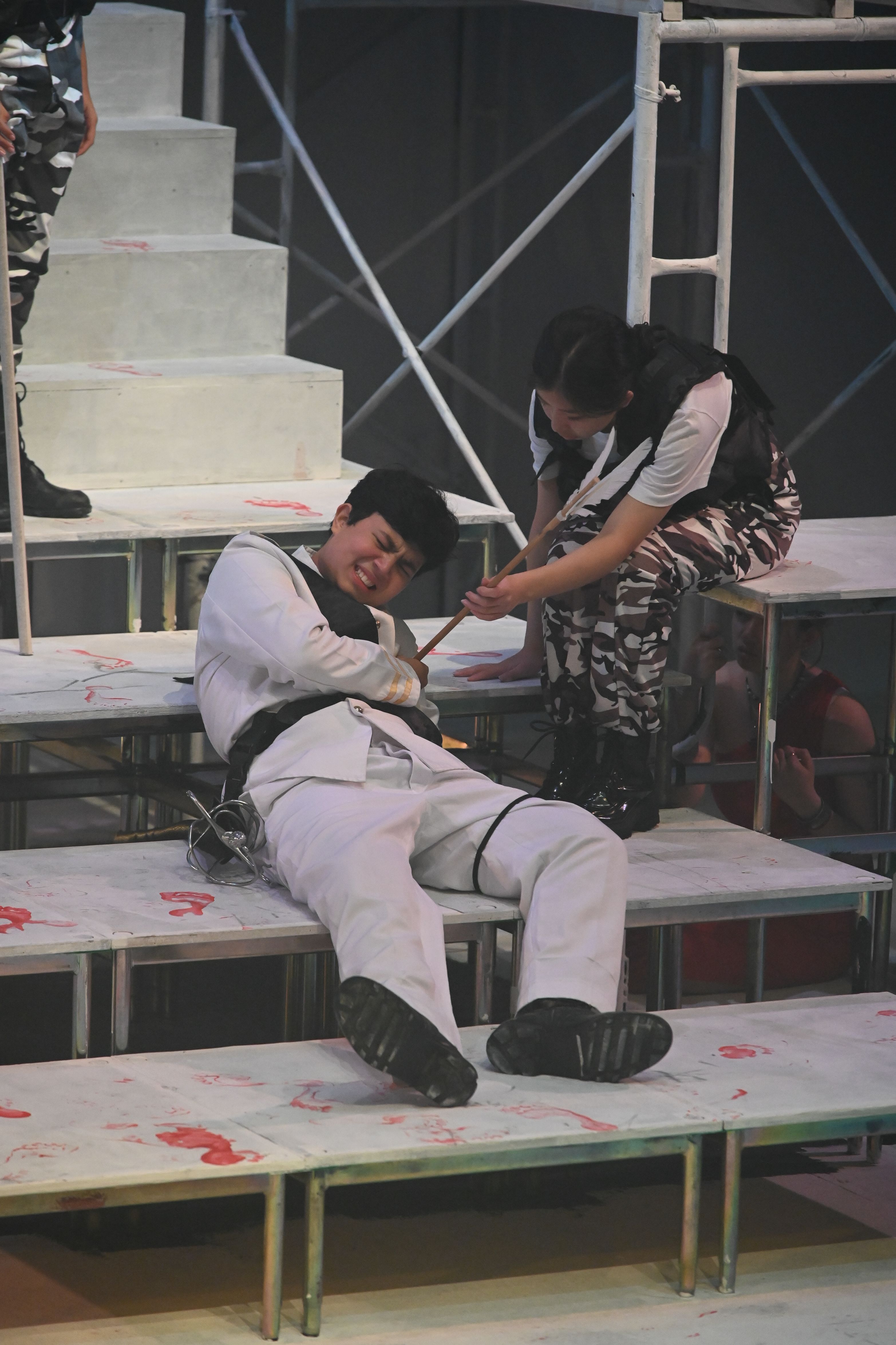
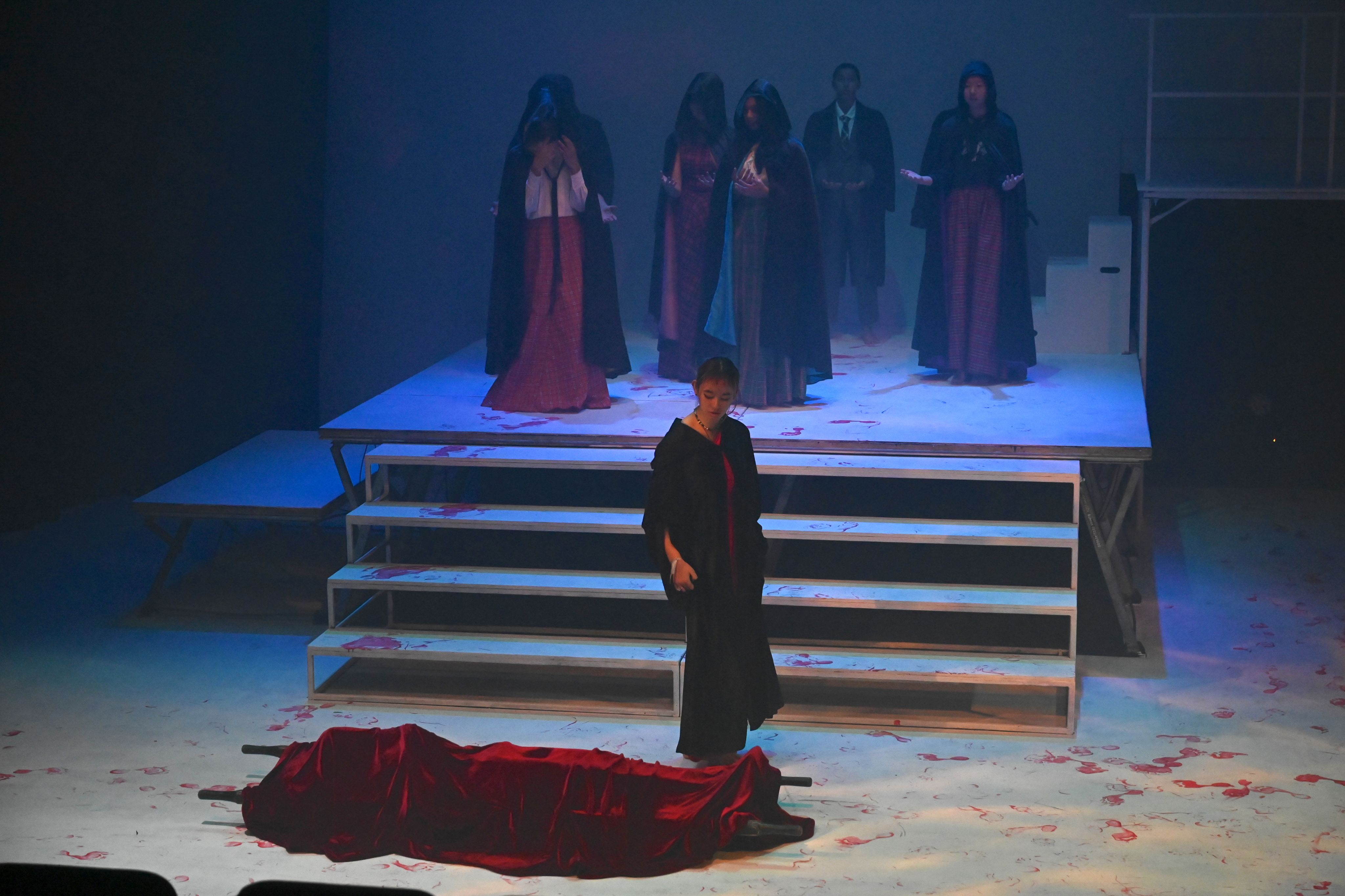
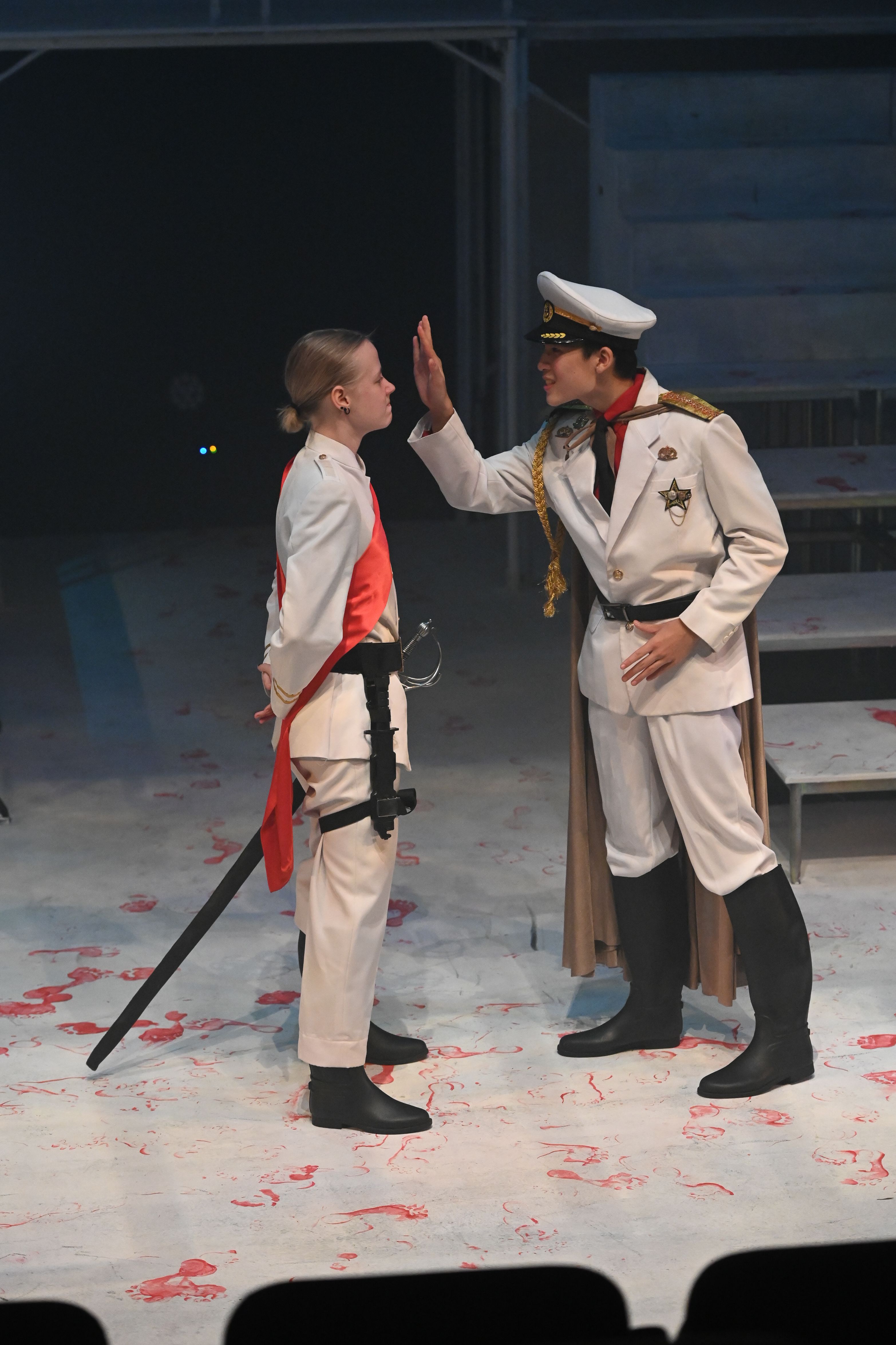
“Our language is the forest…”
In a play that explores foreign occupation, it is important to note that native languages are often under threat and their removal is used as a way to subdue a populace. Language is a key to unlocking culture and culture is the very thing Siward struggles to understand throughout his time in Scotland. Historian Stuart Laycock’s research in 2012 discovered that out of the 200 countries in the world, there are only 22 which have never experienced some form of military incursion by the British.
By having the students perform their own translations, our hope is to bring awareness of this, and therefore all of the languages used by the “Scots” in the play are from nations and cultures that have been occupied, invaded or colonised by the British, a key theme of “Dunsinane”.
“Translanguaging” has been a focus for the campus which was brought to light following UWCSEA's engagement with Eowyn Crisfield regarding linguistic diversity and inclusion in 2019.
This approach is an intentional strategy that teachers draw on as necessary in personalising the classroom experience for each student, helping them play to their strengths by allowing them to access and process their learning by using their home language. This enhances their conceptual understanding of the subject, whilst helping them maintain and develop their academic knowledge in, and of, their home language.
Respect for diversity lies at the heart of the UWC mission and linguistic diversity is an important component of how we define diversity. A growing body of research shows that bi- and multilingualism bring cognitive, linguistic, socio-cultural and emotional benefits and that all members of a community benefit from being in a multilingual environment because it provides increased opportunities to develop intercultural understanding.
– Ellie Alchin, Director of Teaching and Learning
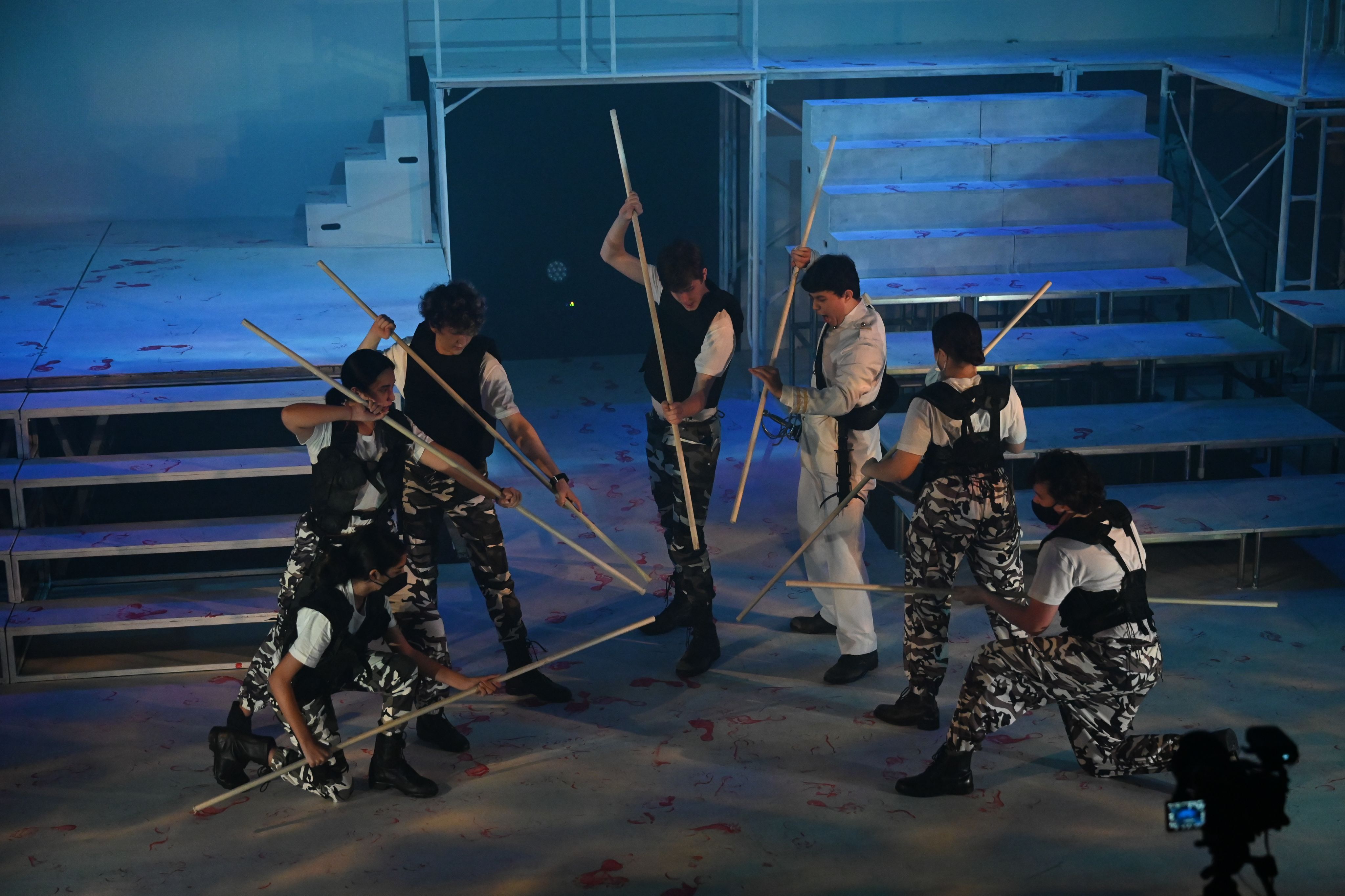
The Director: Jay Douglass
I feel extremely privileged to have worked alongside a group of motivated and committed young performers who brought their energy, passion and enthusiasm to every rehearsal.
I am incredibly proud of what they achieved and the ownership they took of this project. The camaraderie of the Dunsinane cast and crew was a pivotal part of its success. Performers were able to cover lines for each other, often Duologue pairs when not being used in the main body of rehearsal would retreat to adjoining rooms to practice independently.
They would observe each other's scenes and offer advice on staging, voice or emotion and assist with filming complex choreography to use as a reference for later rehearsals.
I choreographed the first scene transition with the spears and gave the cast a “language” of movements. Straight lines, levels, and certain staff movements. With that they went away and created the other three major act transitions, echoing lines in the script. I was incredibly impressed with their trust in my vision and their creativity to create extremely complex and stylised movement set pieces.
The chaos of destruction on stage is actually only possible with repetitive rehearsal focusing on accuracy of movement/choreography, a focus on partner safety and the faultless use of professional, complex special effect rigs. This rigid adherence to protocol is at odds with the end results that often look spontaneous, messy and aggressive. I really enjoy seeing the buzz and understanding on opening night when they get their first visceral reaction from the audience. I think we really created something special during this production when the audience gasped at the death of a character and quickly followed it with cheers and an ovation. A combination that is a first for me and an impressive accomplishment for the cast and crew.
We like to talk a lot at UWCSEA about independent learners, student ownership and cross-curriculum conceptual application. This is one of the best examples I could think of if anyone was to ever ask me what that looks like in action.
